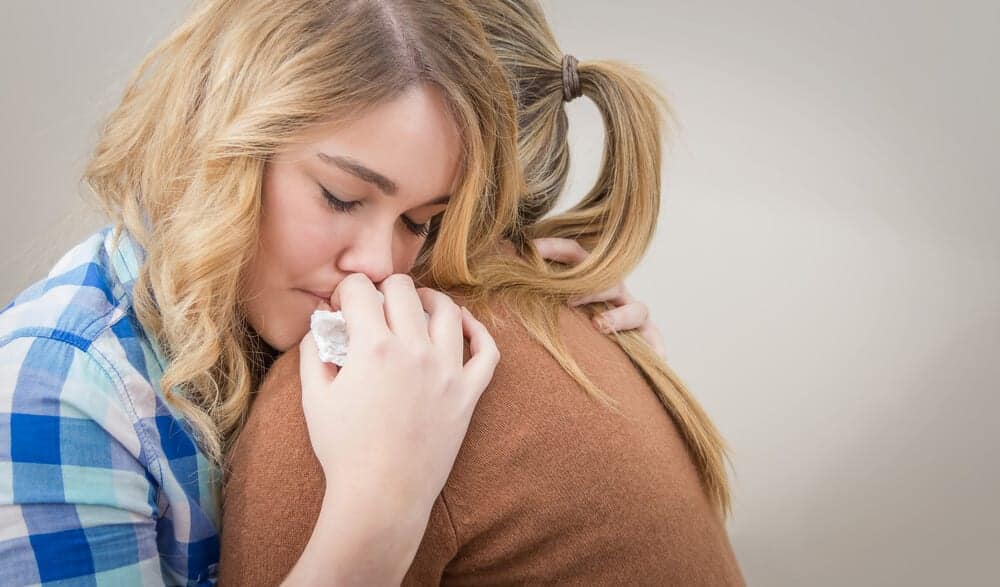
If you are struggling with thoughts of suicide and fear that you are likely to self harm or attempt to take your own life as a result of mental health issues, trauma, or grief from losing a loved one or friend, get help. Call the National Suicide Prevention Lifeline at 1-800-273-8255. They’re open 24/7, year-round or text START to 7417.
In June 2019, the NYPD confirmed that the disappearance of popular YouTuber Desmond Amofah was being treated as a missing person’s case following a concerning YouTube video posted on his channel a day and a half before. Amofah, known in the streaming world as “Etika”, had posted an eight-minute-long video that showed the YouTube star expressing suicidal thoughts.
A week later, the NYPD released a statement that the young man had been found deceased.
Another death that caught young audiences off-guard was that of Disney Channel actor Cameron Boyce. The twenty-year-old died in his sleep as the unexpected result of an epileptic seizure back in July 2019.
Recently, the Korean pop industry was hit by two suicides within a very short period of time. Sulli, formerly of SM Entertainment’s f(x) and Goo Hara of the disbanded DSP Enti group Kara died from suicide within six weeks of each other this fall, leaving the domestic and international music communities reeling from the loss.
Celebrities of all ages have a rough time navigating life in the spotlight. With new forms of celebrity and increased fan access to local celebrities – who, in many cases, lack the emotional support and mental health care they need – modern day celebrities are constantly put through the wringer and many of them are unable to get the support that would keep them at their very best.
And when celebrities pass away – as a result of suicide or because of other conditions – the gap that they leave behind for their devoted followers can be devastating. The grief their deaths cause in their fans can be long lasting and harmful – even leading these fans towards self harm and suicide.
In this article, we’ll be talking about how parents can recognize warning signs of their children undergoing unexpected grief following the death of a celebrity or public figure in their lives as well as how in-patient treatment at a residential facility can actually help teenagers develop healthy coping mechanisms to handle grief.
What does grief look like?
Grief is described by Webster’s Dictionary as “deep sorrow, especially that caused by someone’s death.” As its definition implies, grief is a strong and overwhelming emotion. People dealing with grief will often find themselves feeling numb and mentally removed from daily life, unable to carry on with regular duties while weighed down with their loss.
It’s a natural reaction to feel grief when you lose someone — yet it’s also important to know that everyone experiences grief differently. Mourning the loss of a loved one or a significant public figure can last for months or years. A person can feel fine one day and the next, may feel depressed all over again.
Though grief looks different for everyone, psychologists define grief in fairly specific terms. Here’s how professionals track the signs of grieving in a person who’s experienced a loss using examples of teenagers dealing with the unexpected death of a celebrity.
- Denial: The first phase is denial. When your child first learns of the loss of a treasured, it’s hard for them to understand what has happened. Your child, following this loss, will be left feeling shocked and numb. It is that initial stage that helps them survive the loss.
- Anger: As reality sets in, your child will have to face the pain of their loss. As a result, your child may feel angry and helpless in the face of their senseless loss — and might unintentionally direct their anger towards other people. It is important to help your child remember that it is no one’s fault and to find other ways to manage their grief.
- Bargaining: During this stage, your child will dwell on what they could’ve done to prevent the loss – in the case of celebrities, this is in the form of reporting malicious commenters, trending hashtags, and trying to directly reach out to the celebrity or public figure in question. No matter what happened, they need to know that the death of the celebrity was not in any way their fault — yet during this stage of grief, your child may struggle to recognize this.
- Depression: Sadness sets in as your child begins to understand that they have lost a public figure that’s incredibly important to them and their effect on their life. Signs of depression include crying, lack of sleep (or sleeping all the time), loss of appetite, feeling overwhelmed and loneliness. Unlike clinical depression, this is recognized as a normal part of the grieving process — as long as it lasts for a reasonable amount of time.
- Acceptance: In this final stage of grief, your child will accept the reality of their loss and begin the difficult, yet important process of moving forward with their life. This can be the hardest stage of grief to cope with, but one of the most rewarding, as it allows your child to continue to lead a full life and honor the memory of that important figure.
What happens if your child cannot get over their grief following the death of a celebrity?
While grief is an absolutely normal aspect of dealing with loss, what isn’t normal is a sense of grief that lingers or intensifies across time. If your child’s reactions to the death of a celebrity involve:
- Self-harm
- Suicide ideation
- Violence
- The development of new and harmful habits
- Suicide attempts
They need help.
Suicide and Grief
Between 1999 and 2017, the suicide rate in the United States increased 33 percent – worrying when you realize that suicide rates in other countries such as Japan are dropping. It remains the 10th leading cause of death in the country and is an increasing worry for teenagers and young adults in stressful situations.
Unfortunately, when it comes to the deaths of public figures, it is a fact that these deaths inspired overwhelming grief in the hearts of the young adults that followed them religiously. This has been a trend noted across the decades, from as far back as Marilyn Monroe’s untimely death. When a celebrity passes away, their fans find themselves adrift and their reactions can escalate to worrying heights.
Untreated grief, when left to fester, can cause the person in question to reach for coping mechanisms that are harmful and that can even lead to their eventual death. In the case of a teen dealing with the sudden loss of a celebrity, teens may feel as though they have lost a source of comfort and stability.
Think of the way teens these days become invested in the well-being of Korean pop groups like BTS and Black Pink. With the weight that these teens place on these celebrities for their wellbeing – even when they aren’t Korean – when these groups experience any disruption at all, the fans are thrown into a panic.
If a disbandment – the group breaking up for some reason or losing a member due to a canceled contract – can cause panic and protesting worldwide, imagine with the permanent loss of a member can inspire. As celebrities build their brands to appear more and more approachable and have relationships with their fans that can feel close, when these relationships are severed fans are left flailing.
When those fanbases are primarily made up of teenagers and children? The effects that they may inspire are worrying and may be hard to track because of mood changes and behavioral issues that may just be a part of being a teen.
But you need to be on top of things as situations can change without warning.
As you try to uncover whether your teen is dealing with an unrelenting form of grief following the death of a celebrity or other public figure, here are some coping mechanisms that you can offer.
Coping Mechanisms For Teens Dealing With Grief
- Participating in memorials and other services that will honor the person who passed.
- Self-expression. Help your teen understand that they shouldn’t be afraid to express their pain to others. They shouldn’t be embarrassed to cry.
- Talk to others. Even if your teen doesn’t feel like talking, they should start a journal to write down their thoughts.
- Preserve memories by planting a tree or garden, or honor the person in another way — like a charity run or walk.
- Join a support group. There are many people that turn to support groups so they do not feel alone with their pain.
Getting Your Teen Help For Grief

We know that it can be difficult to recognize the signs of grief gone overboard in your teen. Teenagers are complicated as they move between adulthood and try to get a grasp on their emotions, but once you recognize the signs of grief, you can make the steps forward to helping your child heal from their hurt.
As a residential treatment facility, we of course find ourselves recommending residential treatment for teenagers struggling to deal with their grief at the death of a celebrity or another loved one.
At Beachside, we provide treatment that helps teens overcome grief in the moment as well as in the future if their grief is triggered by something – a song the celebrity liked, a brand of clothing they wore, for instance. These places have professionals around your teen all day to help them overcome their grief — allowing your child to focus on nothing but finding coping strategies, bonding with others who have experienced grief and speaking to therapists who can help them work through this loss.
These spaces are places that encourage healing and hope. The educated and compassionate staff members work tirelessly to ensure that they are providing the best care possible to every person who is struggling with grief.
Many of these facilities have people there to help your child understand the grief and loss process. They have experience in the neurobiology of depression, and specialize in helping bereaved patients develop new thought processes and behavior that can keep the brain healthy throughout the grief process. These facilities have therapists that help your child identify and remove behavioral and attitudinal components that can complicate the grief process.
Losing someone is hard. Losing someone that they never really had? That’s especially difficult for teenagers to cope with. All you can do as a parent is provide loving care and room for healing.
Here at Beachside, we understand many of the reasons why a teenager responds to the death of a celebrity with overwhelming amounts of grief and negative coping mechanisms that are harmful to themselves. Because of our experience with working with teens dealing with a variety of mental health issues and trauma, we believe that we’re a fantastic place to send your teenager for help with unlearning bad behaviors caused by their trauma – and learning how to live in the wake of a tragic loss that the world around them seems to have trouble recognizing. Not sure how we can help? Why not reach out for a callback or to set up a tour?




